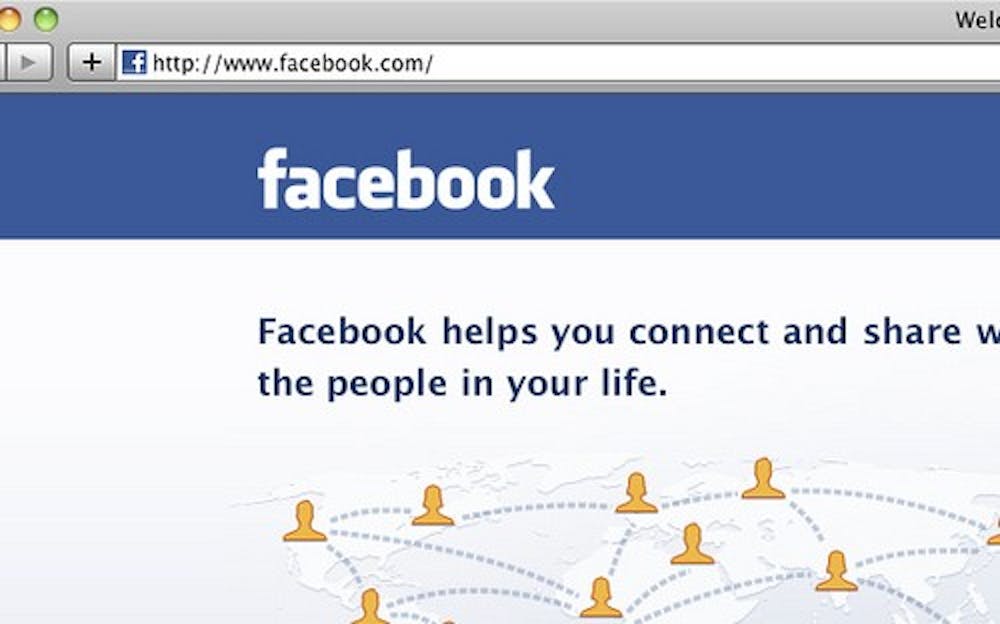By Marissa Stipek
On Feb. 4, 2004, Harvard student Mark Zuckerberg changed the world. Well, he altered it a bit, specifically the way we communicate with one another.
This was the day Zuckerberg launched the revolutionary social networking site, Facebook. Originally intended for Harvard undergraduates only, the site expanded to students at all universities and gained 1 million users within the first year, leading to the eventual decision to open its virtual gates to anyone age 13 and older.
Today the site has 1.49 billion monthly users, 728 million of whom log in each day. Once used by teens as a way to flaunt their social lives, Facebook is now used by people of all ages as a way to keep in touch with out-of-state relatives, rekindle lost friendships or romances, advertise for a business or even generate attention for a cause.
Since its creation, the site has been constantly evolving and improving. In 2007, the concept of "Facebook Gifts," was developed, enabling users to present friends with a gift-card redeemable for rewards like Starbucks or songs on iTunes. "Facebook Chat," an instant messaging sidebar, was added in April 2008 for private conversations. And, in 2009, Facebook debuted the "Like" feature-a thumbs up icon used to show support, excitement or interest on friends' posts.
But, for every action there is an equal and opposite reaction, leading fans and critics alike to ask, "What about a 'Dislike' button?" This year, change will come again and the long-anticipated "Dislike" function may finally become a reality.
In the past, Facebook had been wary of a "Dislike" button. The idea has somewhat of a Pandora's Box feel; while there could be some benefit, there may also be unrealized dangers waiting to be unleashed. According to BBC, Facebook founder and CEO Zuckerberg held a forum Tuesday at the company's California headquarters and explained his change of heart. He rationalized that it is not always appropriate to "Like" a status, and a "Dislike" button would allows users to show empathy toward negative events in their friends' lives.
This makes sense. How many of us have hesitated to like our friend's posts about a lost wallet, a death in the family or a breakup, because something didn't feel quite right? A "Dislike" button would allow us to acknowledge the post and show that we are supportive, but in a way that doesn't feel so counterintuitive. Furthermore, Facebook is becoming increasingly news-oriented. With the rise of more serious news stories being posted and shared, it is silly to assume that a "Like" icon would be an adequate way for people to express their opinions toward these topics. The change will allow Facebook to be competitive as a legitimate forum for news.
According to Time Magazine, the "Dislike" button would serve not only to express emotions, but also to filter your newsfeed. Because of the sheer volume of information held within Facebook, the items that appear in a user's newsfeed are calculated using an algorithm. Part of this calculation takes into account posts that users have previously liked and are therefore presumed to be interested in. A "Dislike" button would be a way to show disapproval, eliminate items and ultimately have an even more customized experience.
Now obviously everyone's biggest question is how to monitor the use of a "Dislike" button to ensure people aren't simply using it as a way to cyber-bully or express unwarranted negativity. BBC reports that Zuckerberg stated he, "did not want [the button] to be a mechanism with which people could "down-vote" others' posts," as on forums like Reddit or Yik Yak. Since Facebook doesn't allow the same anonymity as Yik Yak, hopefully people's consciences will keep them in check.
Another potential problem the button could pose is ambiguity. Say for example a friend posts something about the current refugee crisis, and I "Dislike" it. Does that mean that I feel sad that the tragedy is happening but still find the story worthwhile? Or does it mean I am disinterested in the topic and do not want to see stories like this in the future?
It will be interesting to see what kinds of rules and regulations come with the new "Dislike" button. As for now, I give it a tentative thumbs-up.

